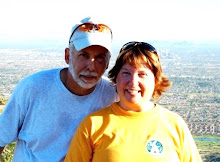I quickly admit to being a philosophy and science junkie,
which equates to reading books by types like Stephen Hawkings or various
atheists and apologists that could be world-renowned scientists or theologians.
I just finished a book by John Lennox that was a critique of Hawkings’ book,
Grand Design. It is well written with an approach that used real logic to
consider some of the tough questions about life and its origins. I know that
after reading a few reviews on Amazon that your bias would definitely color
your view of whether this book was a fair overview of Hawkings’ work. It is
rather difficult to understand most scientists regardless of their worldview.
I know that over the last century or so most that are
outside of the faith community have viewed science as having erased the need
for God. Most would look back and say that god was used as an explanation for
the unexplainable. Thus, God became the gap god. As science advanced the need
for god became less and less apparently. The challenge is that the presumptions
of the science community still don’t answer the real questions of why is there
something instead of nothing? How did it all begin? Is it really possible to
have something come out of nothing? It is easy to read a book like Hawkings’,
Brief History of Time? Yet, most today don’t get the notion of Einstein
relativity, quantum mechanics, string theory or the M-theory proposed by
Hawkings and what it all has to do with me in 2014!
I can remember reading a book in college that addressed the
challenge for both the science and faith community when it comes to being
honest about the difference between factual evidence versus presuppositions
that aren’t provable but could be probable. The reality is that no one
regardless of their worldview is too quick to admit to their bias and be honest
that their dearly held beliefs are just that beliefs that might be based upon
great learning tools but are still presuppositions. The book, Theories of
Scientific Revolution, sought to help the scientific community to be more able
to let go of past paradigms that didn’t work or could actually be viewed as
false. Much in the same sense that there are certain views in the faith
community that weren’t based upon sound logic or Biblical study that also need
to be let go. (It is difficult to fathom that many were put to death for saying
that the world wasn’t flat but round.)
What’s interesting for me is that I work with youth and
adults who for the most part don’t have a real appreciation for science or
philosophy. Most are more concerned about whether there is food in the frig,
does the car work and is there going to be enough money on the empower box so
the air conditioning works tonight so I can get some sleep. I also work around
a lot of millennials who are educated but don’t see much need to get excited
about the big questions until their life is rocked. It’s when someone faces a
tragedy or life awaking, that questions of why I’m here matters and more so
what happens when I die?
It is rather fascinating that there has been a series of
Christian movies that address these issues that have actually been box hits.
It’s rather funny that what is perceived as a B class movie, that costs nothing
to make, has made over 75 million dollars. This is true of the following
movies; the Jesus Movie, God is Not Dead, Heaven is for Real and
Unconditional. Sometimes a story form of
explanation is much easier to get than some heavy metaphysical or scientific explanation.
I know that with God is Not Dead it’s the textbook classroom setting with pagan
philosophy prof and zealous freshman student. Yet, the bottom line still comes
back to our individual stories. The college prof is still hurting and resentful
against God for the death of his mom and the freshman is hurt because his
girlfriend and family harp on him for being a fanatic.
I know that often I’m viewed as the odd duck because I have
both a science and a philosophy and theology background. How is it possible to
have both these disciplines going on in your brain? I truly believe that both
or not just compatible but really work together. There are many things that
science isn’t designed to explain that theology gives a worldview that helps.
Much as theology isn’t designed to explain principles or details about the how
instead of the why.
So please don’t be too quick to buy into the god of the gaps
view of many scientists and also don’t bail on science because its’ not your
cup of tea!


No comments:
Post a Comment